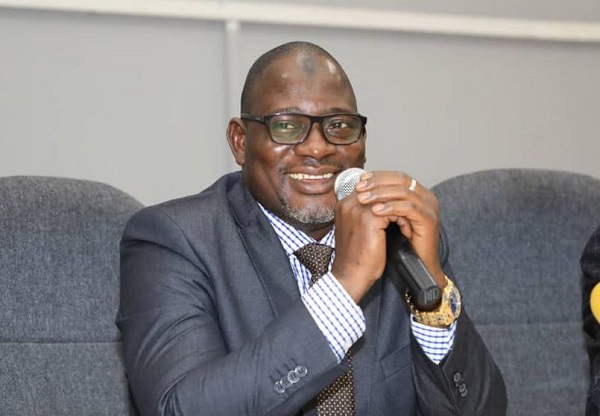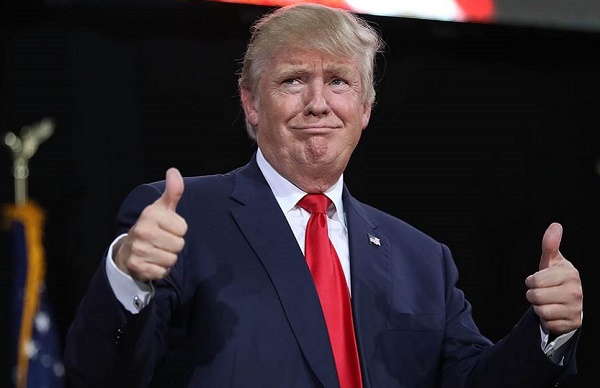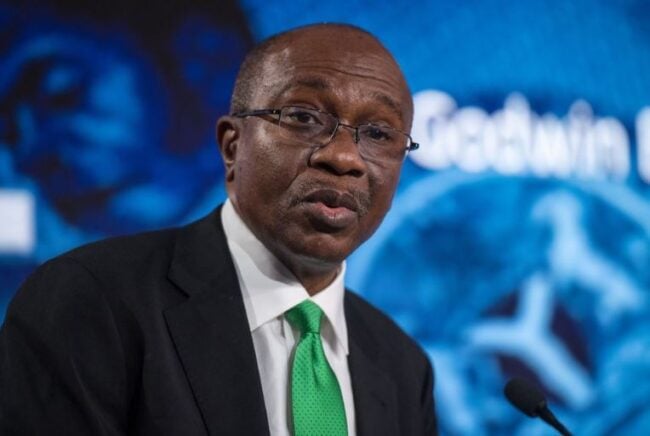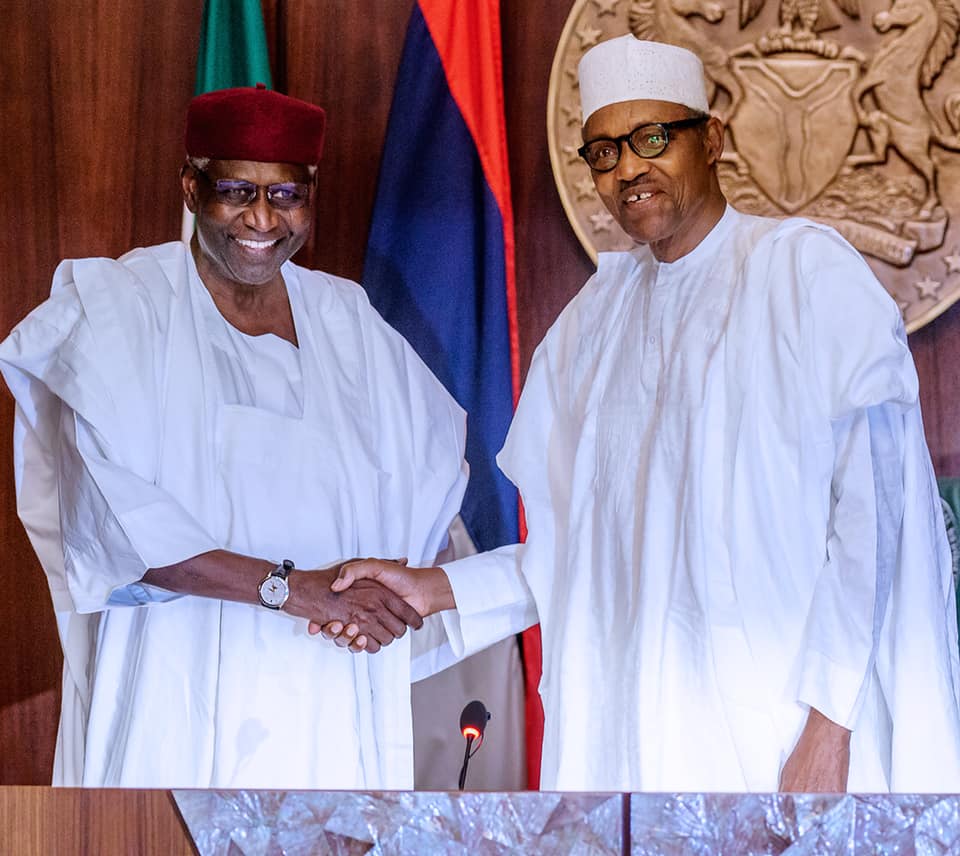Even the oracle in my village can correctly predict the state of the nation’s economy by the third quarter of this year. The IMF therefore deserves no compliment for projecting that Nigeria would enter its worst recession in 30 years. Covid-19 is bringing about a new world economic and social order, just as the price of oil, Nigeria’s backbone, is on free fall. Evidently, covid-19 has forced the IMF and World Bank to hold their ongoing Spring Meetings online for the first time in history.
In the midst of this feeling of gloom and doom enveloping our nation, however, our chief tax collector is upbeat. At a press conference to mark his first 100 days in office, Muhammad Nami, executive chairman of the Federal Inland Revenue Service, didn’t appear perturbed by covid-19 now ravaging the world. He said he and his team at FIRS were determined to meet their N8.5trillion revenue target for this year, despite all odds.
What gives Nami this hope? We have almost always been in a recession, and the average Nigerian feels it even in the air he breathes every day. The tax authority led by Nami is bracing to work against the tide. The latest report from FIRS shows that its collection for the first quarter of 2020 is an improvement on what it garnered at the same period last year. It has collected more than N1.2trillion against more than N1trillion during the corresponding period of 2019. This 15% increase happened in spite of the sharp decline in the price of oil and a shutdown of the global economy in the face of covid-19.
The remarkable performance is evident in the reported increases in collections from capital gains tax (568% increase), gas income tax rose (420%), and even petroleum profits tax (9%). Others include companies income tax (152%), NITDEF (522%), stamp duty (40%), and value added tax (27% at the customs level and 13% at the non-import level). Ongoing reforms and deployment of more ICT platforms are said to have been used to counter operational challenges at FIRS.
Advertisement
It’s a “new record in revenue collection”, says FIRS’ director, communications and liaison department, Abdullahi Ismaila Ahmad, in a press statement on Thursday. FIRS led by Nami has blocked leakages in the system and embarked on other wide-ranging reforms aimed at repositioning the agency for efficient service delivery, Ahmad adds.
Another presumed source of Nami’s optimism has been the Nigeria Finance Act 2019, an instrument for strengthening the taxation system that came into effect on February 1, 2020. The Act increased VAT from 5% to 7.5%. But the Act also triggered a reduction in withholding tax rate from 5% to 2.5% in certain sectors, decline in levy paid by taxpayers to obtain TCC, and the full takeover of PAYE (pay as you earned) and PIT (personal income tax) in the FCT by the FCT-IRS.
A major source of Nami’s optimism is the stamp duty. At the conference to mark his 100 days, he talked gleefully about it, saying it would be made “the goose that lays the golden egg for the federal government”. It’s not postage stamp, he clarified, but a tax on transactions, manual or electronic, of N10, 000 and above. N50 might be considered a small sum, but Nami reminded us that if the unremitted stamp duty on chargeable transactions from year 2000 were calculated, it would yield as much as N20trillion. FIRS on Nami’s watch is about to deploy cutting-edge technology to drive the process of collecting this “flagship tax” that has the potential to yield trillions of naira.
Advertisement
I’m aware that every FIRS boss since the days of Mrs Ifueko Omoigui-Okauru has tried their hands at reforms aimed at increasing the capacity of the country’s tax authority. Using new technologies to capture taxpayers, FIRS seems to have become the government’s honey pot. It’s given a target to meet each year, no matter the shape of the economy or the purchasing power of Nigerians. Yet, we know that the majority of Nigerians are so poor that they operate outside the banking system.
I believe Nami will soon see economic recession as a drawback in FIRS’ tax collection effort. As my friend, Simon Kolawole, commented just before the end of December last year, people and businesses must make money first before you can tax them well. And I have a personal testimony: in 2017, a company in which I have interest sought to obtain a tax clearance certificate from FIRS and was given a bill of almost N400, 000; yet the businesses it had engaged in for the three previous years couldn’t turn in N1, 000 as profit. The result was that the company closed shop soon after the tax authority’s demand, as it battled the headwinds of economic recession in the country. FIRS didn’t get a kobo from the company! The threats to sanction tax defaulters couldn’t have been directed at people and businesses without money to pay.
These are early days for Nami, however. He came to FIRS only on December 19. Although he considered his experience so far sweet and sour, he had no need to dismantle his predecessor Babatunde Fowler’s legacies because his finesse in tax matters can stand him in good stead. One major change he effected was the disuse of tax consultants for jobs regular staff members were employed to do. Likely, the commissions earned by the former have been saved for FIRS. And the regular workers have become more motivated. Nami recognizes the new-found cooperation and support. “They are quite excited now and willing to work harder than before because I have taken steps to return the functions previously given to the consultants back to them so that they can perform optimally,” the executive chairman said.
When, therefore, Nami read reports suggesting that he was doing away with the structures he met, he chuckled. He however said that in order to achieve efficient service delivery he has since put in place a new management team that is very proactive. In an Easter message to the FIRS staff last week, he urged them to ignore alleged reports that he criticized Fowler. This is because, according to him, “such blatant allegation did not come from me and it is not a reflection of the mood and spirit of the present committed, focused, and hardworking management team”. He therefore advised them not to “give chance to stand-patters to derail us from our resolve to put in place a system that we can all be proud of in the long run”.
Advertisement
Nigerians are more likely to trust their government when they see transparency and honesty in the management of scarce resources. Every government wants to raise funds from taxation so it could meet its budget expectations – recurrent and capital expenditures – but the government must also reciprocate by displaying probity in managing revenues collected from hardworking citizens. It can do this by showing more commitment to protecting them from terrorists, providing for their health needs or offering palliatives to starving citizens especially in this period of lockdown occasioned by the COVID-19 pandemic.
It is hoped Nami would work to boost the confidence of Nigerians in the system. If he succeeds in doing so, FIRS may even exceed its revenue targets year on year. Its stellar performance in the first quarter on Nami’s watch points to a brighter future.
Nwamu, an entrepreneur, is the CEO of Eyeway.ng
+234-8054100220 (SMS/WhatsApp only)
Advertisement
Views expressed by contributors are strictly personal and not of TheCable.
Add a comment







